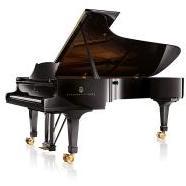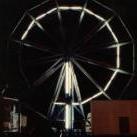Leaderboard
Popular Content
Showing content with the highest reputation on 08/05/2019 in all areas
-
Something which defies expectations as per conventions, but I think in the context of this discussion, it's probably more fair to say "a style that is somehow identifiable to a particular composer" But really, everyone who isn't trying to imitate someone else will develop a style of their own without having to really think about it. This depends entirely on what you want to do If all you want to do is write a good piece of music, then less "originality" and more "familiarity" is good. Having a distinct style there is not a bad thing, but not required. If you want to be a composer for film and stuff, then having something that sets you apart from the endless waves of competition is vital. Newcomers in that business generally complain about being undercut by guys who will "do it for free" or at least less. However, what they fail to realize is that they're all making the same "trailer" and Hans Zimmer knock-off music; the only thing they can offer their potential clients is a cheaper price. Meanwhile, guys like Silvestri, whose signature is clear in their scores, can basically command their price and get tons of work — because they bring something no one else can authentically offer to the film. There are two things that people who are into primarily orchestral music generally fail to realize: 1. The kinds of music that they study and put on a pedestal was not the music of the common folk. "Art music" was — and I don't care how much you flame me for saying it — mostly a trend designed to appeal to the aristocracy. It HAD to be different from what the peasants were listening to, or else the rich would have no interest in it. Just look at this self-righteous letter penned by Chopin Yeah man, screw all those disgusting normal people who like music they can dance to. The bulk of Beethoven and Mozart's pieces that remain popular with most people today, are curiously their simplest ones. The reality is that the kind of music most people listened to back then, was not much different from what appeals to people to day. A good tune and rhythm. This is why old folk tunes have maintained their appeal through the ages while rich-people music from the times has waned. Suspiciously, interest in it has greatly waned now that everyone can afford it. Because now, rich people can afford yachts and fancy vacations and disgusting "gourmet" foods that are over-rated and they probably don't even like, but they can flex on the normies with it. I find it amusing that all the great sculptures, paintings and architecture of European history are still appreciated the world over, and in most cases were BUILT by the underclass. But suddenly, when it came to art music and they said they didn't like it, now they were wrong. They were "dunning-krugered", etc. Same with the inane tat that is "modern art". Now, the rich people know what's best! Meanwhile, orchestras are doing everything in their power, playing "lesser" music, to stay relevant in 2020 and with good reason: There is no rule that says society must have orchestras. So if those orchestras aren't playing music people want to hear, they will die out. 2. Most deliberate attempts at "revolutionizing" music have failed Shoenberg and his serialism are gone, and probably for a reason. Now look, I'm willing to agree that standards have fallen greatly since the 20th century due to technocracy, industry nepotism, and consumerism. But like I said, you'll find that what MOST people like about music has not actually changed. Most people would rather listen to old sea shanties than schoenberg, just as most people would rather listen to AC/DC than Mahler. When you compare The Parson's Farewell to Thunderstruck, it immediately becomes clear what the musical appeal and similarities between to the two are that are responsible for their longevity. Given that, I think it's pretty clear that if you try to reinvent the wheel, you're going to wind up disappointed in the long run.2 points
-
The difficulty is that when trying to be original, you have no control over what your contemporaries are doing. Ideas don't appear out of a vacuum. We are all the products of our cumulative experiences. So it's very likely that the same influences that nudge you towards writing a certain kind of music are acting on other composers in the same way. There are a LOT of people on the planet at this point in history, and it ends up being a numbers game. And today we live in a globally connected world. We don't have the comfort of long periods of musical isolation from the neighboring cathedral towns or royal courts while we gather our thoughts and develop our ideas. If you're working on it, someone else is going to hear about it. If someone else is working on it, it's hard to stop their ideas from leaking into your inner soundscape. We also have no control over what happens after us. Trying to strategize the best direction for your music now, in the context of music history two hundred years from now, is a pretty impossible task. If you've got the foresight to solve that one, can you please stop pursuing composing and sort out world peace instead? What seems original now may completely miss the boat for what ends up being significant. I say, just write what you like. One of the best predictors of being important to the direction of music in your time is to write enough music to get good, and to get good enough to be performed, filed away in music libraries, and passed around to other musicians so you can influence other people. If you hate what you are writing, you won't be able to stick around long enough to get good. You'll quit before you get started. So compose music that you find moving, don't quit to spend your free time watching TV, and if you are very lucky, you may stumble on something original enough to move the gears of progress a notch.2 points
-
Hello everyone, I take great interest in rarely-played music from the romantic period, and have discovered some true gems among the literally thousands of composers from that era alone. These discoveries have naturally brought the following questions to my mind: why aren't these composers played more often? And why haven't I heard of these geniuses and their music before? The reason I started this post is because of another made by @Maarten Bauer, called "How original do we need to be?", where he asked interesting questions regarding originality in music. I began to consider these questions in an historical context, particularly in the case of lesser known composers. Music historians often say that the music of these lesser-known composers isn't often played because it wasn't "original" enough, and they often refer to them condescendingly. Take, for example, Harold C. Schonberg's comments on the lesser-known composers Sergei Taneyev, Erno Dohnanyi, and Nikolai Medtner, in his chapter about Rachmaninoff from "The Lives of the Great Composers": "Sergei Taneiev (1856-1915) was a Russian academician and specialist in counterpoint, whose music, if his Second Symphony is a fair example, was devoid of life and character and is as individual as a toothpick nestled in a box of toothpicks. Nikolai Medtner (1880-1951) was another Russian eclectic who, like Rachmaninoff, was a pianist-composer and who did Rachmaninoff the great honor of imitating him. Medtner's music has all but disappeared from the repertory. He was a composer in the order of Erno Dohnanyi - a good craftsman who seldom came up with an original idea." Such pleasant writing, huh? But just how "unoriginal" are these composers? Having listened to their music, I personally think that their music is far from unoriginal. Or at least, not entirely conventional. And I'm not the only one who thinks this way. Looking in the comments of videos of these pieces, I see a lot of people saying that these pieces are just as good as many famous compositions, or just people expressing their admiration of these works - quite unlike Schonberg's deprecatory descriptions of them. Obviously, Dohnanyi, Medtner, and Taneyev are not the only rare composers - in fact, there are far more unusual and under-performed masters than those 3. I shall list a few examples: -William Henry Fry, USA (1819-1864) - Niagara Symphony -Franco Alfano, Italy (1875-1954) - Concerto for piano trio -Bernardino Custodio, Philippines (1911-2001) - Nocturne for the Left-Hand -Max Trapp, Germany (1887-1971) - Piano Concerto While all of these composers are arguably late-romantic, some of their pieces are in styles I have never heard before. For example, I have come to believe that had Fry's Niagara Symphony been written by one of the major names in music history (say, Berlioz or Liszt), that piece would have been considered a revolutionary achievement! (It was never played during his lifetime.) I think its safe to say that these composers are not underrated because of supposed "lack of originality". Obviously, the "originality" conundrum is not the only supposed reason for burying certain composers. I hope to go into those other reasons in future discussions, and also mention some remarkable and shocking examples of this apparent historical blacklisting. So, this brings us to those same questions from earlier: why aren't these composers performed more frequently? And why didn't we know about them before now? I'm interested to hear your reasons for this seeming burial of musical legacies; I have a few personal theories, but I want to hear your opinions first. I apologize for the sheer amount of text, but I believe that this is an important issue that needs to be addressed. I also understand that this is an arguably subjective issue, but some things cannot be ignored. My point of view is that I personally care deeply about rare romantic music, and think it should be promoted to much wider audiences.1 point
-
Hello everybody, My name is Selma and I’m 16. I’m a french singer and I’m looking for someone who can produce for free a melody with lyrics already written. I would like a pop music enough fresh for a teen. Thanks for taking time to read this announce and maybe see you soon !1 point
-
This is a concertino I wrote specifically for a youth chamber orchestra. Although it's not a perfect performance, I was very pleased with the results considering the amount of rehearsal time they had. This is my personal recording of the piece from my place in the audience, so I do apologize for the fuzziness and the whispers going on around me. The name means 'Boreal Song' or 'Song of the North.' Though I generally prefer to convey my musical ideas through chord structures, this piece is more lyrical than my normal wont. There are 2 major themes and a number of motifs throughout. The piece was designed to represent the struggle of spring overcoming winter, so I hope you can hear that in the tense passages and deep yearnings of the solo cello. As always, feedback is welcome! Edit: @Maarten Bauer I just saw you put up a piece performed by a youth orchestra, too, so now it looks like I'm trying to one-up you! That wasn't my intent at all, so everyone please go listen to Maarten's piece, too!1 point
-
This is a really beautiful piece! As someone who likes more lyrical music, this was a real pleasure to hear. And you really did capture the feelings of the struggles between winter and spring! It reminds me of the music of late-romantic Scandinavian composers, like Grieg, or Sibelius, or Kuula, for the beautiful wintry sound, though you still managed to make it sound like it belongs in the present era. Well done! 🙂1 point
-
Thanks a lot Tonskald ! 🙂 Glad you liked it ! Still can't add reputation points... technical problem raised and unfortunately not solved... 😭😉1 point
-
Equilla, that was masterful! It sounded like Chopin could have written that himself. I'd love to see the score, of course, in order to provide more structured feedback but do I have the following bits of advice based on the recording: The phrasing was difficult for me to follow. I heard the opening theme—which was marvelous—but after a few minutes I got lost in all the chromatic passages and free tempo changes. Who knows, though? I might just be too musically obtuse to catch all the musical ideas you presented. Speaking of musical ideas, I would have liked to have seen them developed more. To me—an amateur musician—they seemed disjointed, unrelated, and a tad ostentatious, as if they were there more for the pianist to display his/her virtuosity than for thematic development. (In my best Cockney accent: Just me 'umble opinion, though, miss.) There's no question you are brimming with talent and promise. Some works I've heard by amateur composer are so musically unsound that I can hardly give any feedback at all. Yours I understood—for the most part I could tell what you were doing and where you were going—and that ability to connect with your audience I think speaks to the depth of composer you are... and will become! Keep up the great work! Cheers!1 point
-
Originality is not the ultimate goal of a composer. Or at least, it shouldn't be. It's a step along the journey to finding a creative voice and being able to use it when faced with empty paper. This is why many orchestras are unwilling to take on new works. I spoke to someone who used to work for the RSNO, and they said that they got dozens of emails from budding composers every day, just wanting the opportunity to have a work performed. I've already answered this in another comment (see above) but I feel that it's worth saying that an original - or even unoriginal - style is all about exposure. Whatever music you listen to is the style you will subconsciously take on. Art is so difficult to explain in words, that it can make discussions impossible, especially to those who aren't native English speakers. I applaud you all.1 point
-
Sorry, I don't mean to keep jumping in on the discussion like I have great things to say... but I was unclear of what you meant here. I feel like we're saying the same things, I just worded my position badly perhaps. I was trying to convey the idea that art, and music in particular, is susceptible to a theoretically infinite number of "art forms" because there are a theoretically infinite number of opinions to shape those forms. I find this to be a beautiful thing in and of itself since our individual artwork is a unique expression of ourselves. What I disagree with is a "credentialing body" (i.e., academia, musical elitists) declaring what is art and what is not—and then claiming the right to censor those who disagree with them by labeling them as "unvisionary" or "too uncultured to see the deeper meaning." The beholders (i.e., the audience) of said artwork should determine its fate. If it's truly a bad work of art, the beholders will know. Even if the credentialing body is screaming otherwise. And... now I'm officially off-topic. Originality. Yes. If it's original and it's art, it will stand the test of time. Now I'll shut up.1 point
-
Really nice, Maggie. Your aesthetic choices are solid and there's a good arc to it as well. A good psalm for communion.1 point
-
Well, the least common multiple 18 and 4 share is 36, so maybe you could incorporate that somehow? You'd have to play the loop back to back, but then you could plug in a 16 + 16 + 4 loop underneath as "counterpoint." Or I may have just made this 36 times more confusing...1 point




